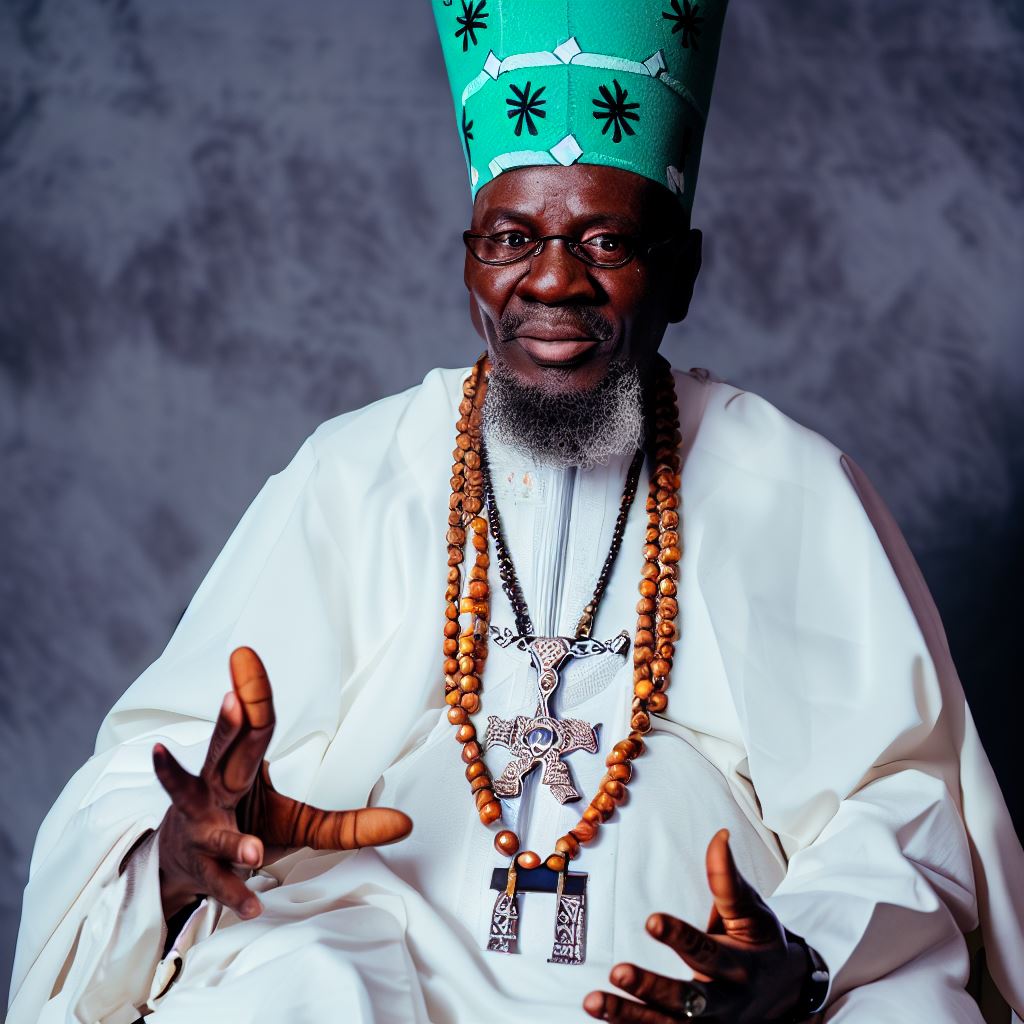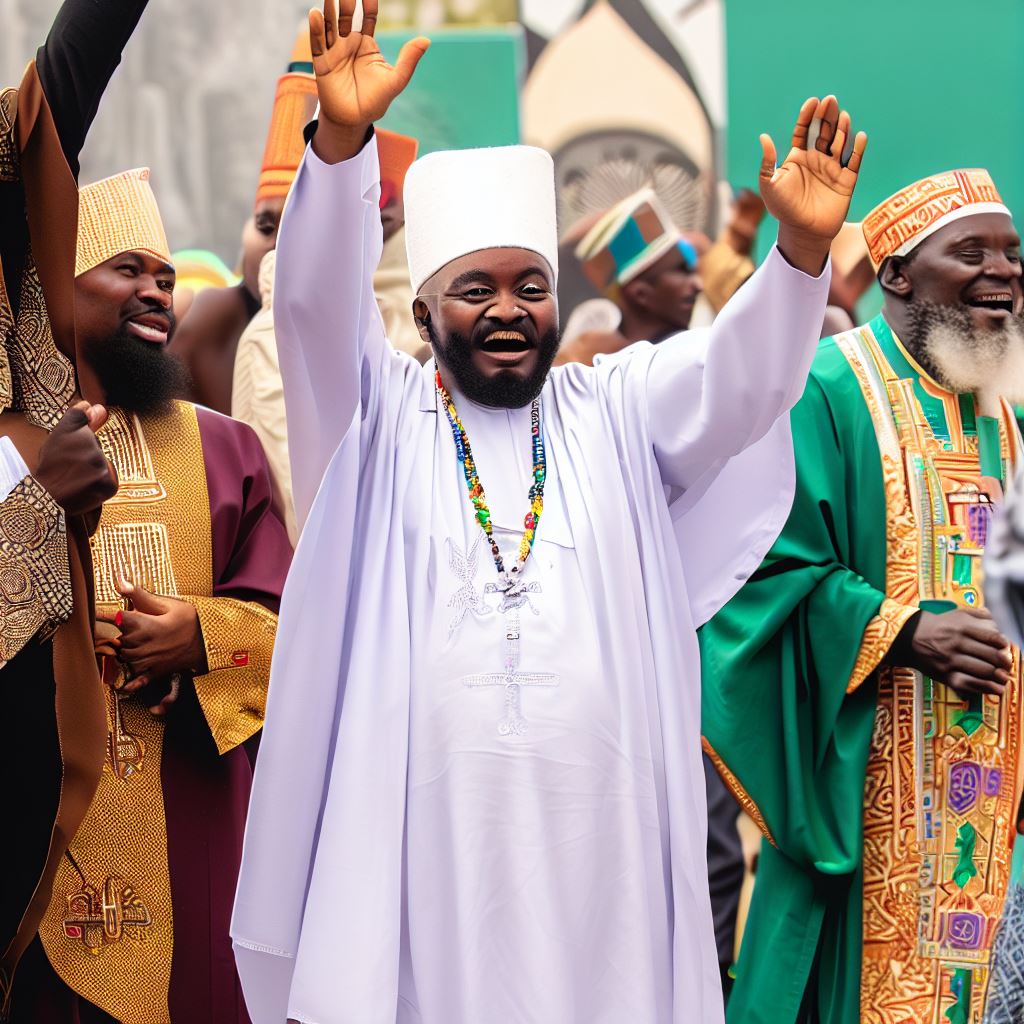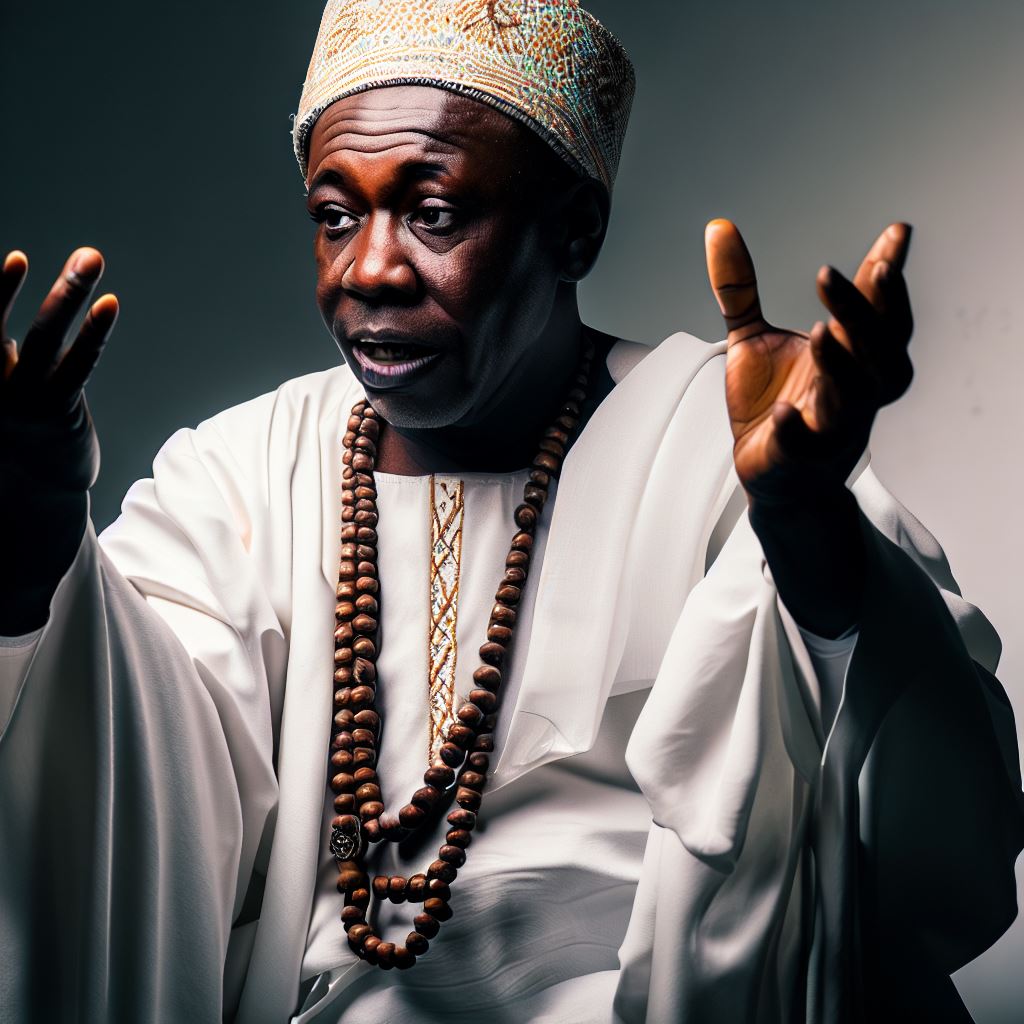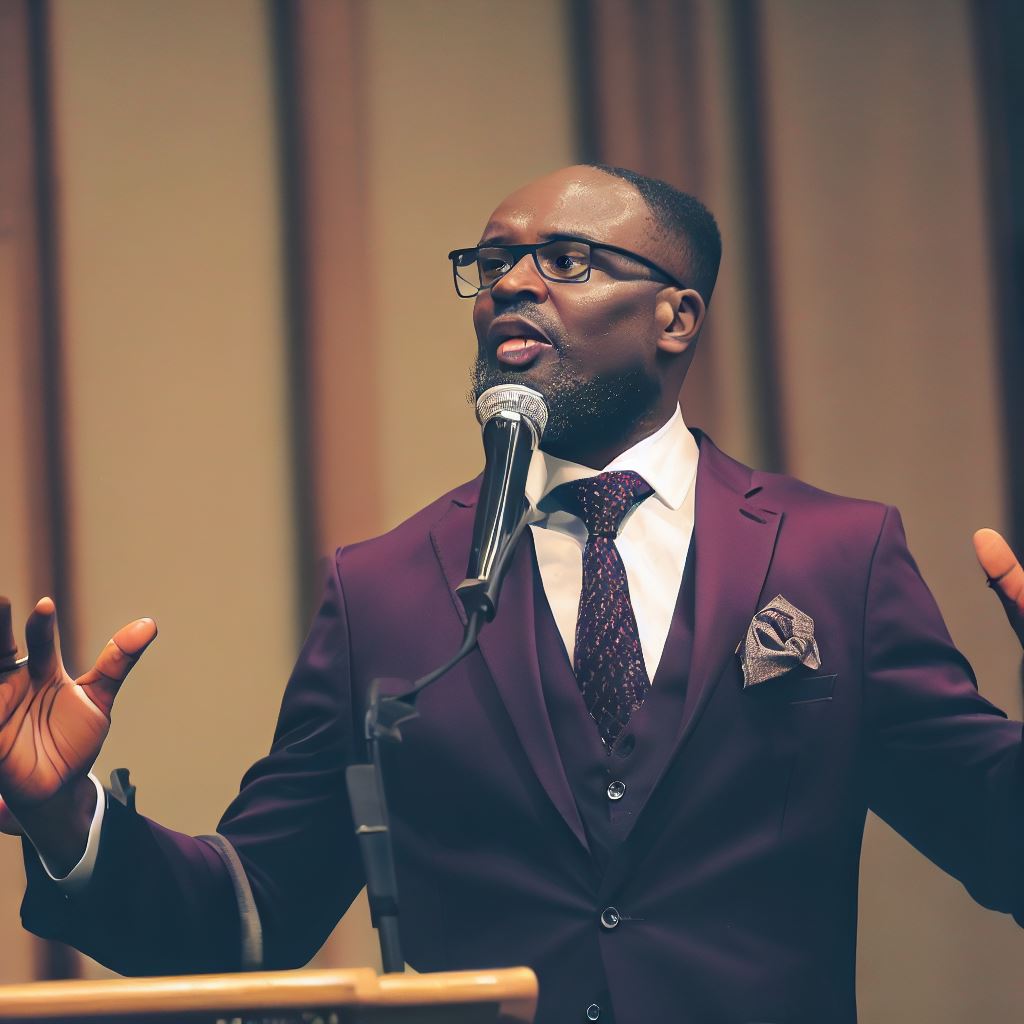Introduction
Clergy and politics in Nigeria is a complex and contentious topic that requires careful analysis.
In this blog post, we aim to shed light on the relationship between the clergy and politics in Nigeria.
Our purpose is to provide an in-depth exploration of this issue, evaluating the role of religious leaders in political affairs and the impact it has on Nigerian society.
By examining this topic, we hope to gain a better understanding of the dynamics between clergy and politics in Nigeria and the implications it has for the country’s development and governance.
Join us as we navigate through this intricate subject matter to uncover the complexities and nuances of the clergy’s involvement in Nigerian politics.
Historical Background
- Nigeria, a country located in West Africa, gained independence from British colonial rule in 1960.
- The country has a complex political history with various military coups and transitions between civilian and military governments.
- Nigeria has a diverse population with over 250 ethnic groups and a roughly equal division between Christians and Muslims.
- Religion has played a significant role in shaping the country’s political landscape throughout its history.
A. Overview of Nigeria’s Political History
- After gaining independence, Nigeria faced challenges in establishing a stable political system.
- Several military coups in the 1960s and 1970s led to prolonged military rule and political instability.
- In 1999, Nigeria transitioned to civilian democratic rule, which continues to this day.
- The country operates under a federal system with a president as the head of state and a multi-party system.
B. Influence of Religion in Nigeria
- Religion plays a significant role in Nigeria, with Christianity and Islam being the dominant religions.
- Religious identity often overlaps with ethnic and regional identities, leading to religious tensions and conflicts.
- Religious leaders hold significant influence over their followers and can impact political decisions.
- Religious institutions play a crucial role in providing social services and addressing societal issues in the absence of effective government programs.
C. Role of Clergy in Nigeria’s Political Landscape
- The clergy, including Christian and Muslim religious leaders, have historically been active in Nigeria’s politics.
- They often express political opinions, endorse candidates, and mobilize their followers during elections.
- Clergy members have served as mediators in political disputes and have advocated for peace and justice.
- Some religious leaders have also been involved in political controversies and have faced criticism for their actions.
- The influence of the clergy in politics is not limited to elections but can extend to policy-making and governance.
Overall, Nigeria’s political history has been shaped by religious dynamics, with religion playing a crucial role in people’s lives and influencing political decisions.
The clergy, as influential religious leaders, have actively participated in Nigeria’s political landscape, expressing their opinions, mobilizing their followers, and even serving as mediators.
However, their involvement has been controversial at times, with criticisms raised against some clergy members for engaging in political controversies.
Nonetheless, the influence of the clergy extends beyond elections and can impact policy-making and governance in Nigeria.
Read: Nigeria’s Clergy in the Digital Age: An Exploration
The Clergy and Political Activism
Clergy in Nigeria actively engage in political activism, using their influence to shape political outcomes.
The involvement of clergy in political activism in Nigeria is significant and widespread.
There are several reasons behind the clergy’s interest in politics, including a desire for social justice and the promotion of moral values.
- The clergy sees politics as a means to create change and address societal issues.
- The impact of clergy’s engagement in political activities has both positive and negative aspects.
- On the positive side, clergy provide moral guidance and promote ethical behavior among politicians.
- They can also act as a bridge between the government and the people, advocating for the needs of the marginalized.
- However, the clergy’s involvement can also be divisive and lead to polarizing debates within religious communities.
- It can undermine the separation of church and state and compromise the neutrality of religious institutions.
- The clergy’s political activism has historically played a crucial role in Nigeria’s democratic struggles.
- During the country’s fight against military rule, the clergy played an instrumental role in mobilizing the masses.
- They organized peaceful protests and used their pulpits to condemn tyranny and advocate for democratic reforms.
- Today, the clergy’s political activism continues to shape Nigeria’s political landscape.
- They express their opinions on governance, policy issues, and even endorse political candidates.
- The clergy’s interest in politics stems from their commitment to social justice and their desire to see a better Nigeria.
- They believe that their faith should be reflected in the political decisions and policies of the country.
- Many clergy see politics as an avenue to address societal issues and fight against corruption.
Clergy in Nigeria play an active role in political activism, driven by their commitment to social justice and promoting moral values.
While their engagement in politics has positive aspects, such as promoting accountability and advocating for the marginalized, it also raises concerns about the neutrality of religious institutions.
It is crucial to strike a balance between the clergy’s involvement in politics and the separation of church and state to ensure a harmonious society.
Read: The Growth of Interfaith Dialogue in Nigeria’s Clergy
The Controversies
A. Controversies surrounding the involvement of clergy in politics
The involvement of clergy in politics has been a subject of intense debate and has given rise to several controversies.
One of the major controversies is the issue of separation of church and state.
Critics argue that clergy should focus solely on their religious duties and stay away from political affairs.
Another controversy is related to the perceived bias that clergy might have in political matters.
It is argued that clergy, being religious leaders, may have their own personal beliefs and biases that could influence their political stance.
This raises concerns about the impartiality and fairness of their involvement in politics.
B. Arguments against clergy’s participation in political affairs
There are several arguments against the participation of clergy in political affairs.
Firstly, it is believed that clergy should be neutral and unbiased spiritual leaders, guiding their followers in matters of faith and morality.
Engaging in politics could compromise their role as spiritual guides and blur the line between religion and politics.
Secondly, critics argue that clergy’s participation in politics may lead to the manipulation of religious sentiments for political gains.
This can potentially divide communities along religious lines and incite religious conflicts instead of promoting harmony and unity.
Furthermore, clergy’s involvement in politics might dilute the secular nature of governance.
In a diverse society like Nigeria, where people practice different religions, it is essential to maintain a secular political system that respects all religions equally.
Clergy’s active participation in politics may undermine this principle and lead to favoritism towards a particular religious group.
C. The ethical considerations and conflicts of interest involved
The involvement of clergy in politics raises several ethical considerations and conflicts of interest.
Firstly, clergy are expected to be moral leaders and uphold the values of honesty, integrity, and transparency.
However, when they engage in politics, they may face temptations to compromise these values for personal or political gains.
Moreover, conflicts of interest can arise when clergy start associating themselves with specific political parties or ideologies.
This can undermine their impartiality and credibility as spiritual leaders. It may also lead to the erosion of public trust in the clergy, as their political affiliations might overshadow their role as objective moral guides.
Additionally, the involvement of clergy in politics can create tensions within religious communities.
Different factions within a religious group might have varying political beliefs, leading to internal conflicts and divisions. This can disrupt the unity and harmony that religious communities strive to maintain.
The involvement of clergy in politics is a controversial topic that raises questions about the separation of church and state, the impartiality of religious leaders, and the ethical considerations involved.
Critics argue that clergy should refrain from participating in political affairs to maintain their neutrality and the secular nature of governance.
However, proponents highlight the clergy’s potential to advocate for social justice and moral values in the political arena.
Ultimately, finding a balance that respects both the religious and political domains is crucial for a harmonious society.
Read: Challenges Faced by Nigeria’s Clergy: An Insightful Look
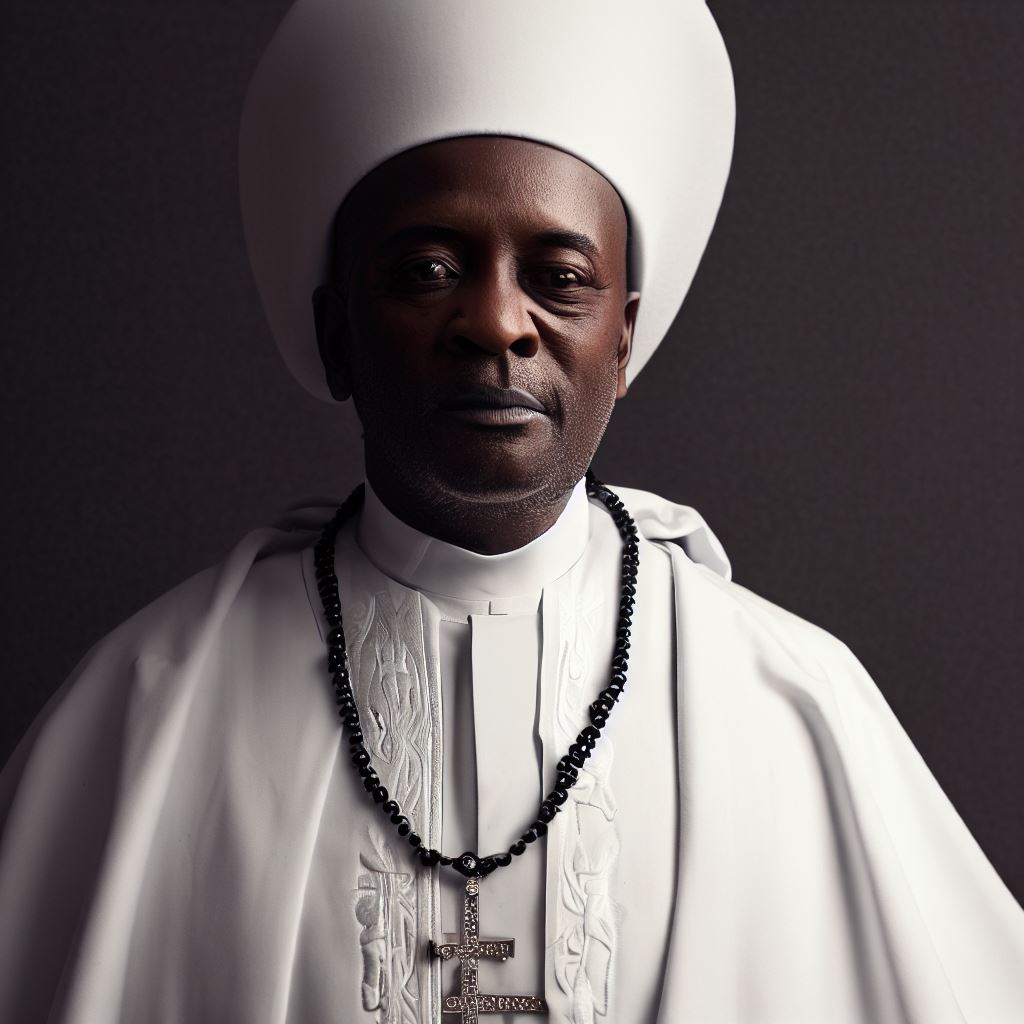
Case Studies
A. Analyze the Motivations and Outcomes of These Engagements
Archbishop Desmond Tutu was motivated by a deep sense of justice and fought for equality in South Africa. His activism eventually led to the end of apartheid.
Reverend Martin Luther King Jr. was motivated by a belief in nonviolence and equality.
His leadership and activism resulted in significant civil rights legislation in the United States.
Pastor Chris Okotie’s motivations for political campaigns in Nigeria are less clear.
Some argue he seeks power and influence, but the outcomes remain debatable.
B. Assess the Public Perception and Reaction to Clergy’s Involvement in Politics
The public perception of clergy’s involvement in politics varies. Some individuals view it as a positive expression of faith and a necessary engagement in societal issues.
Others, however, believe clergy should focus solely on spiritual matters and refrain from political activism.
They argue that mixing religion and politics can lead to bias and compromise ethics.
Reactions to clergy’s involvement in politics can range from admiration and support to criticism and skepticism.
Some see it as a betrayal of their spiritual duty, while others appreciate their advocacy for societal change.
The reactions often depend on an individual’s political ideology, religious beliefs, and personal experiences.
Read: The Economic Impact of the Clergy Profession in Nigeria
The Role of Religion in Political Decision Making
Religion has always played a significant role in shaping political decision making in Nigeria.
The influence of religious beliefs on these decisions cannot be underestimated.
A. The Influence of Religious Beliefs on Political Decision Making
It is essential to examine how religious beliefs shape political decision making in Nigeria.
The clergy, as religious leaders, have a substantial influence in this regard.
One must understand the dilemma that clergy face in balancing their religious duties and political engagement.
They often struggle to maintain neutrality while advocating for their religious values.
The clergy’s involvement in politics can be seen as both a positive and a negative.
On the one hand, they can provide moral guidance and promote ethical decision making.
On the other hand, their political engagement may compromise their credibility as spiritual leaders.
The line between religious duty and political activism can be blurred, leading to conflicts of interest.
B. The Impact of Religious Affiliations on Political Campaigns and Voting Patterns
Religious affiliations have a significant impact on political campaigns and voting patterns.
Nigeria is a country characterized by diverse religious beliefs, with Christianity and Islam being the dominant ones.
Political candidates often align themselves with religious groups to gain support and legitimacy.
They make promises and appeal to the religious sentiments of their constituents.
Religious leaders also play a vital role in influencing voting patterns. They guide their followers on whom to support based on religious principles and beliefs.
This influence can sometimes be problematic, as it may lead to the manipulation of religious sentiments for political gains.
However, it also highlights the importance of religious affiliations in shaping the political landscape.
In Nigeria, the role of religion in political decision making is undeniable.
Religious beliefs shape political decisions, and the clergy often find themselves in a dilemma while balancing their religious duties with political engagement.
Religious affiliations also have a significant impact on political campaigns and voting patterns, with candidates and leaders appealing to religious sentiments to gain support.
While the influence of religion in politics can be both positive and negative, it is crucial to acknowledge and understand its role in shaping the Nigerian political scenario.
The Way Forward
A. Solutions and Guidelines for Clergy’s Participation in Politics
- Promote the separation of church and state: Clergy members should prioritize their religious duties and refrain from directly running for political office.
- Encourage indirect political involvement: Instead of becoming politicians themselves, clergy can support or endorse candidates who align with their values.
- Emphasize ethical conduct: Clergy participating in politics should always uphold high moral standards and be accountable for their actions.
- Foster interfaith partnerships: Collaborating with members of different religions can promote the common good and reduce bias in political decision-making.
B. The Importance of Defining Boundaries and Maintaining Transparency
- Avoid conflicts of interest: Clergy engaging in politics should clearly define their roles and avoid situations where religious duties clash with political ambitions.
- Disclose financial ties: Full transparency regarding financial contributions and any potential conflicts of interest is crucial to maintaining credibility in both the religious and political realms.
- Set clear guidelines: Establishing codes of conduct that highlight the boundaries between religious leadership and political involvement can help prevent misuse of power.
- Communicate intentions with congregation: Clergy should ensure transparency with their followers about their political activities, motives, and how it aligns with their religious beliefs.
C. The Significance of a Healthy Democracy with Equal Representation
- Promote equal representation: Clergy should be mindful of ensuring diverse voices are heard and represented in the political sphere, working towards a fair and inclusive democracy.
- Advocate for social justice: Clergy can play a vital role in addressing societal inequalities and advocating for policies that promote justice, fairness, and the well-being of all citizens.
- Maintain political neutrality: While actively engaging in politics, it is crucial for clergy to remain impartial, refrain from favoritism, and work towards the greater good rather than personal or religious interests.
- Educate the congregation: Empower followers to understand their rights and responsibilities as citizens, encouraging them to actively participate in the democracy-building process for a better and more just society.
While the participation of clergy in politics can bring valuable perspectives and ethical leadership, it is essential to have clear guidelines, transparency, and a commitment to promoting an inclusive and democratic society.
By adhering to these principles, clergy can effectively contribute to political discussions while upholding their religious duties and serving the best interests of the community they represent.
Conclusion
In this blog post, we explored the complex relationship between clergy and politics in Nigeria.
We discussed how religious leaders have become actively involved in political matters, influencing public opinion and politicians alike.
We also highlighted the challenges and controversies surrounding this involvement, such as accusations of partisanship and the potential for religious bias.
The clergy-politics nexus in Nigeria is a delicate balance that requires careful examination. It is an intricate web of power, faith, and democracy that continues to shape the nation’s political landscape.
As Nigeria moves forward, it is crucial for both religious leaders and politicians to navigate this relationship with integrity and transparency.
In light of this, we urge readers to reflect on the implications of clergy involvement in politics and the importance of maintaining a healthy and accountable democracy.
With Nigeria’s socio-political future at stake, it is imperative for all stakeholders to promote a respectful and inclusive dialogue that upholds the principles of religious freedom and democratic governance.
Only through such concerted efforts can Nigeria achieve a harmonious coexistence between clergy and politicians, ultimately leading to a stronger and more united nation.

